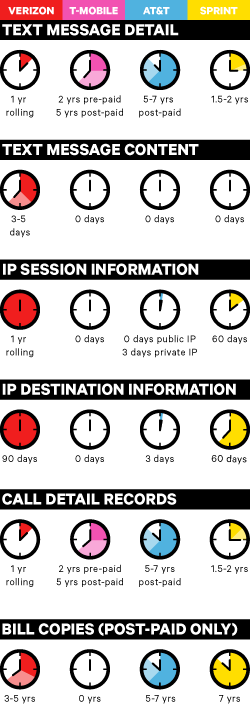
With the help of the American Civil Liberties Union, Wired has published a document detailing how mobile carriers are dealing with your data. The report, which was obtained via a Freedom of Information Act claim, lays out the operations of the major networks.

- AT&T retains your call details records 5-7 years, T-Mobile for five. Compare that to the other services, which hold on to this information for 1-2 years.
- AT&T keeps text message details (the numbers you’re texting and who’s texting you) for 5-7 years. T-Mobile does this for five.
- Verizon keeps the contents—yes, the contents—of your text messages for 3-5 days. None of the other big four do this.
Take note that the report was printed in August 2010, but it would be a pretty big shift of all of these companies policies had experienced large changes in policies since. The news comes as mobile companies are facing intensifying scrutiny over their data retention and tracking practices. You can view an easier-to-read version of the document here for yourself.


